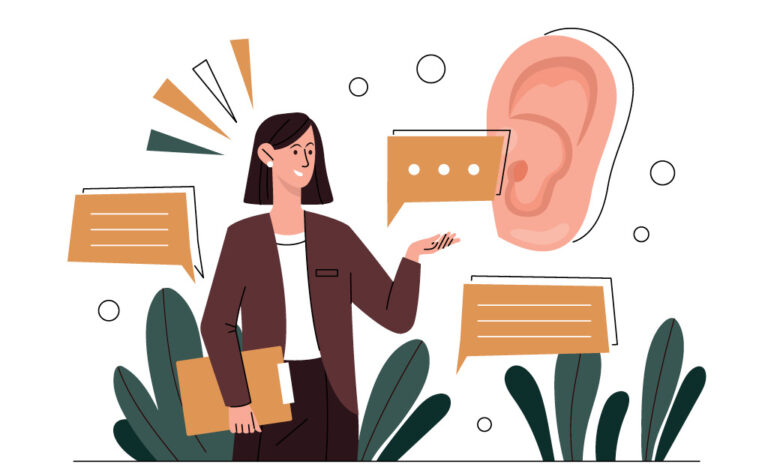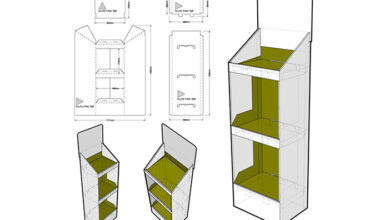Using Listening To Increase Presence & Evolve Your Leadership
Changing the way you listen can improve communication, engagement and rapport in the workplace.

Being present in today’s world is more difficult than it has ever been before. Everyone is constantly bombarded by emails, text messages, social media, news, advertisements and all the other distractions of the modern world.
A lack of presence, especially in leadership, can often lead to poor communication, a lack of rapport with those around you, and volatility, uncertainty, confusion and ambiguity in the workplace. One of the easiest ways to solve this problem is to understand and change the way you listen to those around you.
Most people don’t focus on or participate in listening in a way that actually makes a difference. Learning to truly listen and engage with whomever you are talking to enables connection, builds trust and elevates flow across the board. When you strengthen your ability to listen, you become a better communicator. When you level up your ability to hear, you show up as somebody who is more open to feedback and who appreciates the contribution of what others are thinking and feeling.
Upleveling your listening begins first with understanding what, how and when you aren’t really listening.
Listening From Obligation
When this happens, there is little to no effort from the listener, either due to various distractions or a lack of caring about what the speaker has to say. Common behaviors when you’re listening at this level are multitasking, such as playing on your phone or scrolling through emails when someone is talking to you, tuning out or daydreaming, and anticipating what you think they are going to say and interjecting words for them. This kind of listening makes it impossible to develop rapport.
This level of listening also includes pretend listening, where you are not paying attention to the speaker; however, you still act as though you are listening. This listener’s brain is paying attention to other things, but they are maintaining involvement in the conversation. Think of sitting next to someone very talkative on the plane or talking on the phone with a chatty family member. You aren’t absorbing or understanding the information the speaker is sharing.
Listening From the Inside
This is selective listening or downloading. At this level, you are only listening for what someone else is saying to confirm facts you already believe to be true. You are listening inside of your existing context. You screen out information that you perceive to be uninteresting, lacking in value or that doesn’t conform to your biases and preconceived notions. This level of listening is problematic because you only hear what you want to hear. When you listen this way, it’s all too often to brush feedback aside and/or filter it out altogether.
You know you’ve been listening like this when you come out of a conversation and everything you expected to happen happened. This type of listening is all about you. Your purpose in listening is to validate yourself and invalidate another if they disagree with you. There is no freedom, and nothing new will be created in this kind of listening.
Listening for New Information

This level of listening is about seeking new information, new data and new perspectives. It’s listening to learn. However, you are still listening for what’s in it for you. You’re not curious but listening to gain knowledge or get something out of the conversation. You are taking what you already think and building on it.
At this level, you are open to hearing something you haven’t heard before. You have some new data points and information that challenges your assumptions. Perhaps it exposes some new content or new reality to you. Here, you can actually walk away from the conversation with a memory of what was said and how it changed your perception. You leave the conversation thinking new things or in new ways.
Listening With Curiosity & Compassion
At this level of listening, you are really connecting to the other person. You’ve got an empathic, emotional connection. This is when you’re listening soul to soul, heart to heart, and seeing the experience through another person’s eyes. You’re not only challenging your own assumptions but also actually considering that the other person’s reality is valid. You get to experience that person’s experience. Most one-on-ones should be done with this empathic, emotional connection. You’re letting go of your agenda and having an open mind and heart, building trust and deepening your relationship with this person. You’re curious.
This is when you are fully engaged and focused on the speaker’s words and what those words mean to you and to the speaker. Nothing distracts you from the person with whom you are speaking. They have your full, undivided attention, and it is clear to them that this is so.
Listening for What’s Possible
This level of listening is generative. You have moved beyond any friction and are completely immersed in flow. Everybody is participating. You both are in service of something bigger than the agenda and listening with an open will. At this level, you aren’t just listening to the person but acknowledging the future that wants to be created. This is where innovation happens. This is where the collective genius is not just tapped into but also realized.
This is the highest and most meaningful level of listening and where you want to spend as much time as possible.
Listening at the Highest Level Every Time
We all need diverse opinions and viewpoints. When you listen from the lower levels of listening, which is not really listening at all, you miss out on so much, from critical information and feedback to a chance to develop rapport with your team, a loved one or even a total stranger.
The most effective leaders all excel at listening from the highest level. They make people feel valued, respected and understood. They are also always honing their skills and becoming better listeners. They continually work on opening their mind, heart and will. It’s a continual process of evolution. They are present and focused on whatever or whomever is in front of them. Meaningfully listening to those around you enables you to elevate yourself as a leader, build trust and rapport, and empower the people you’re listening to. Evolving your leadership and achieving optimal results begins with listening.



